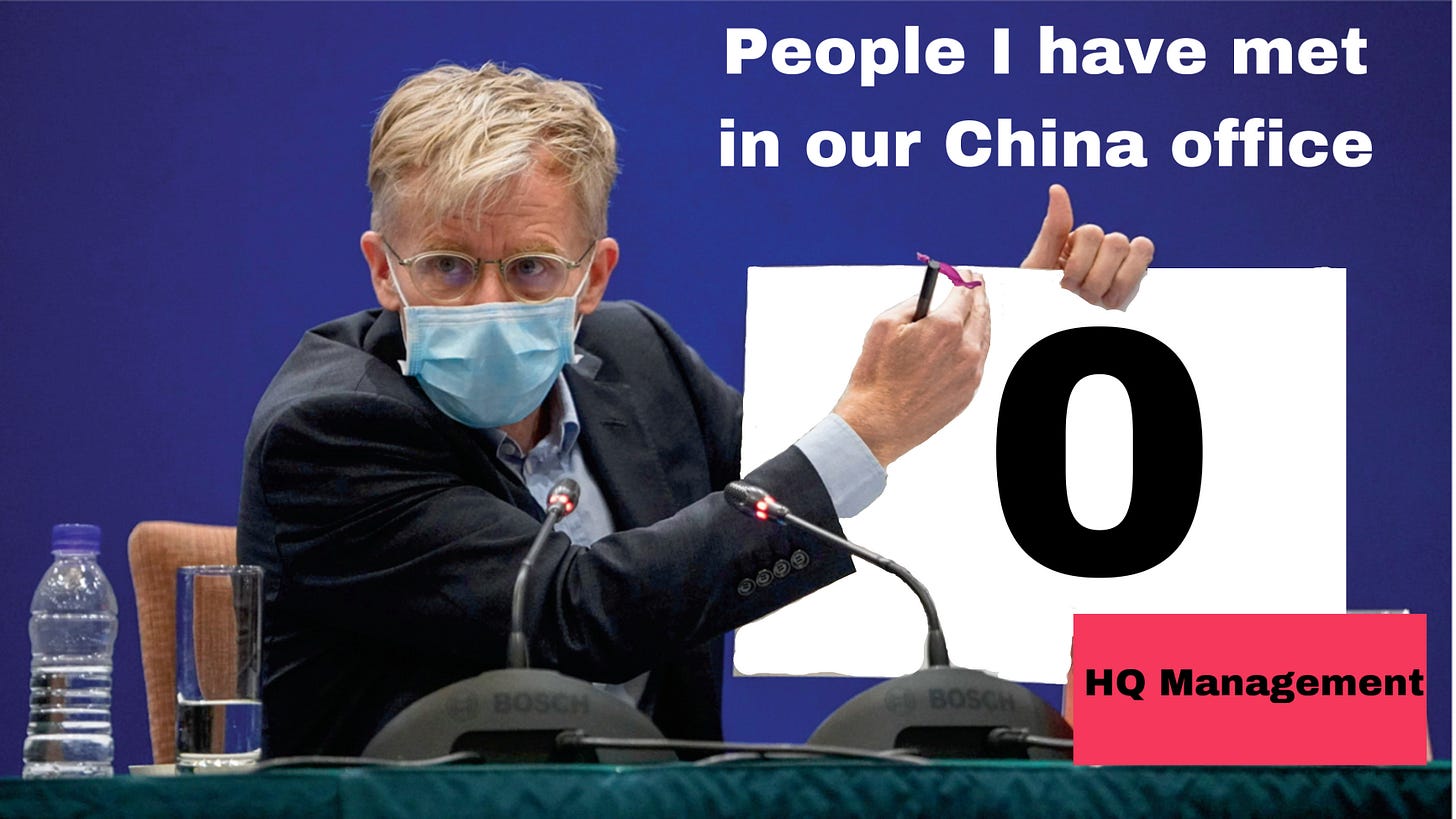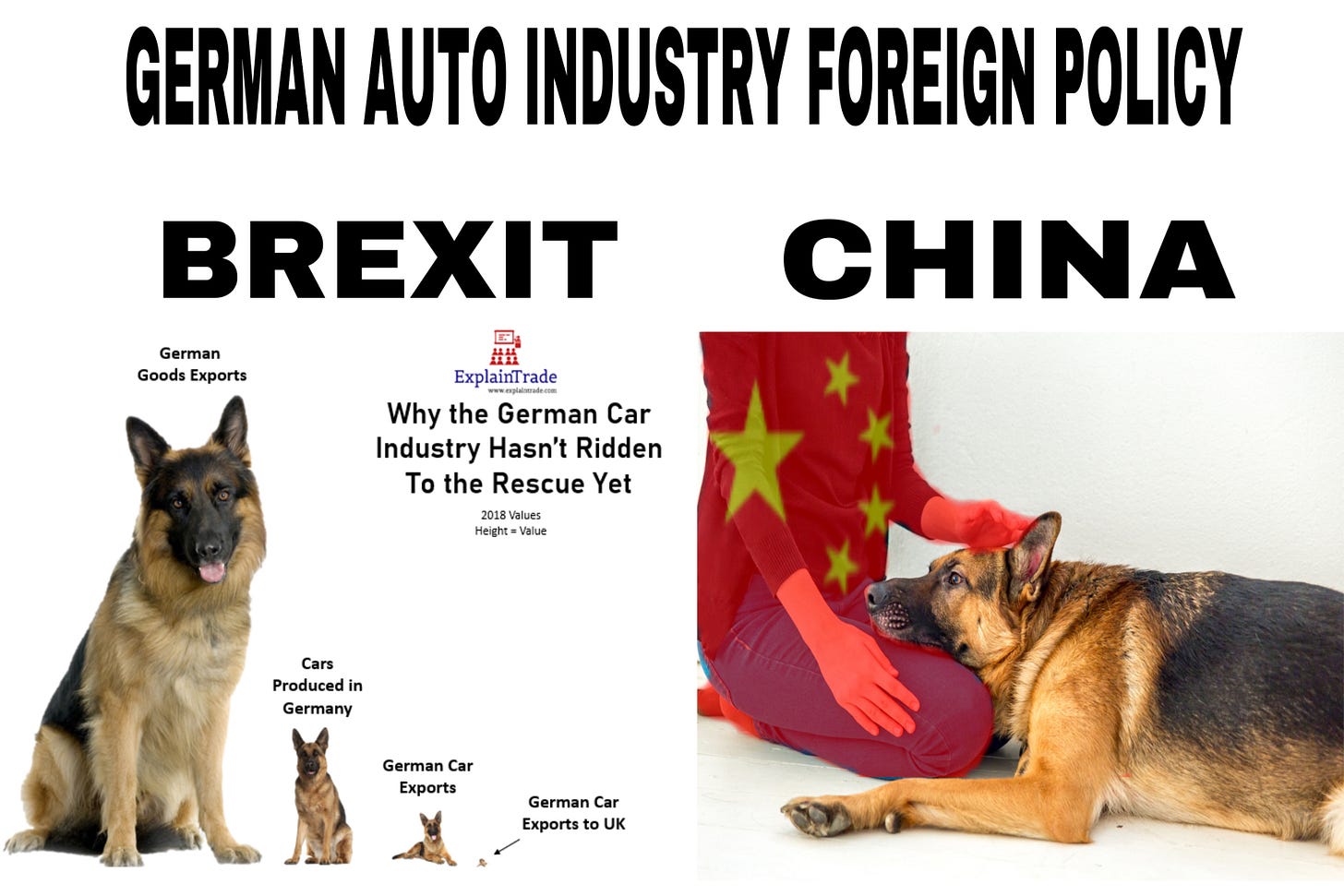Please note all content is personal opinion only. In this case personal opinions of some Germans.
Being primarily exposed to USA and UK media and to a degree Chinese media I was concerned that maybe I was not getting a balanced picture of the geo-political landscape in relation to China.
For this reason I decided to go and see what China hands in Germany were thinking and that there may be a different perspective.
In any event Sino–German relations go way back – with it all kicking off back in 1861 with two regimes (both largely unmissed) that are no longer with us - Prussia and the Qing dynasty – these guys concluded a Sino-German treaty.
Also Germany’s connection can also be discerned in popular culture – one of the most important reference works for me in my daily work and guiding light as to how to live my life is of course - Tintin. Some may find it strange that I seek wisdom in Belgian children’s books but that is just how I roll. Anyway, in Tintin’s Blue Lotus adventure set in Shanghai in the 1930s there is a prominent Siemens electricity advertisement.
There was some period of … estrangement but since the 1990s it was always striking how many German companies were active in China. In the early day working as a lawyer almost all our clients were German (admittedly it was a German law firm) – most were related to the auto industry or making things that make other things (building production lines). Our German clients were almost all successful and almost all of them are still in China today. They were so successful that once I was on a panel at an Australian chamber in the mid-1990s and was asked the question “Do any international companies make money in China?”. I was confused – almost all of our clients were making money. Some were making a lot of money. One of the German car makers a greater margin than anywhere else in the world on their sale of semi-knocked down units sent to their JVs. 1000s of German companies established subsidiaries in China. 100,000s of German expats gained experience in China and millions of Chinese learned how it was to work in German companies. I did not realize that many companies did not share the same success as German companies did.
Sino-German business is big business - Germany is China's biggest trading partner and technology exporter in Europe. China has been Germany's largest trading partner since 2017. Trade volume between China and Germany exceeded 245 billion Euros in 2021. Angela Merkel seemed to be China’s best laowai friend and visited China frequently on trade missions while she was chancellor.
Over the years, businesspeople from both sides seemed to learn from one another. This was starkly brought home to me in Shanghai a few years ago, when we were involved in a sizeable German-invested project. The German investor and lawyer were meeting with the Shanghai customs authorities to discuss whether certain items could be imported under an exempted product category and thereby avoid customs and VAT. The Shanghainese read the German’s list of imported items and compared this to the regulations, and said, “Sorry, but a number of these items are not on the list.” The German side, against expectations, did not take this with Teutonic stoicism but proceeded to have an hour of discussion (or rather, pleading) that the authorities be more flexible and “help them out”. The Shanghai authorities replied that if it was allowed under the regulations, they would get the exemption; if not, no exemption would be granted. This story is a neat illustration of role reversal with the Chinese authorities behaving like German authorities and the German investors behaving like Chinese entrepreneurs. Further common ground in both countries is that it is not surprise that the authorities prevailed.
However, COVID and geo-politics has also shaken this cosy and important relationship – I was in Munich and Berlin in September to see old clients and friends and thought it might be interesting to share some of their observations.
The main takeaway (apart from not visiting Munich just before Oktoberfest) were as follows:
Geo-political Situation is Much Worse – a common theme was that media coverage was much more negative about China than in the past. Most also felt that the reporting was not particularly well informed nor nuanced. Hot topics include Xinjiang and Hong Kong. Many felt that China was judged much more harshly and subject to greater scrutiny than the United States. One friend who runs a China group told us that he was holding closed sessions on these sensitive topics because his organization places great importance on transparency and openness. This was somewhat dampened by his closing the door as he discussed this, but his heart is in the right place.
But Geo-Politics Likely to have Limited Real Effect – most felt that consumers and government may be more negatively inclined towards China but that this was unlikely to translate to much in the way of real action. Politicians in Germany have limited ability to influence or pressure German business. Consumers can be upset … but will become upset about something else 5 minutes later.
De-Risk not De-Couple – one German consultant reacted negatively to the term de-coupling finding it both exceedingly negative but also unrealistic. He has German medium sized businesses looking to de-risk the Chinese business but not quit China. It is more likely that the next factory will be in a site outside of China. However, probably not Vietnam as that is seen to be too integrated in China anyway. There was widely held agreement that really excluding China from the global supply chain was wishful thinking or unthinking populism.
COVID is a real Management Problem – most of the Mittelstand companies really felt that they are lacking insight into their local operations. In the past there was at least a bit of pantomime that the local management was following HQ rules and directions. Few feel the compulsion to even engage in such a charade now. One GM commented that what made her feel most comforted was that the local management in her entity were likely too stupid to be stealing. Normally this would be a red flag but I have met the management in question and I think she may be on to something there. In any event, COVID was really the biggest practical problem.
There is Still Interest in China – one consultant had conducted a detailed survey of 30 Mittelstand companies and found there was still strong interest. The major issue holding them back was concerns re IP rights. Although IP rights are a legitimate concern the level of understanding seemed very immature. Have you protected your IP legally? Do you have a strategy in place to protect the IP rights? If your IP rights are really so great and of great interest to the Chinese market you can bet someone will have bought it and reverse engineered the buggery out of it. Hiding will not work. Personally, I think the much greater challenges are: how do you launch a business in China if you cannot visit China? How do you compete with Chinese competition? Deal with an uneven playing field? These are all complexities that few mentioned.
The Chinese are Coming – it was striking how many Chinese companies were based around Munich – car companies, battery companies – it is curious why they all plumped for the most expensive part of Germany (for people, offices and factories). One German tech investor mused that he thinks to combat China’s new lead in new energy vehicles Europe of the 2030s will likely adopt the Chinese playbook from the 1990s for the auto industry – require Chinese companies to enter into JVs and forced tech transfers against market access.
The BIG are committed – while the Mittelstand seemed somewhat nervous (but not too nervous) the BIG guys are positively doubling down. Rhodium study found that from 2018 through 2021, the top 10 European companies investing in China made up nearly 80% of the European investment. And if you look a little deeper it becomes even clearer the big three German automakers — Volkswagen, BMW and Mercedes-Benz Group — and chemicals group BASF contributed 34% of all European FDI into China by value from 2018 to 2021. The Brexiteers mistakenly thought that the German car industry would intercede with politicians to support the UK. They didn’t but they may for China.
That’s all for this week. I will not return to the discipline of writing every week … or every other week.
Stay in touch!










Another insightful observation Mark. Thank you. I have long wondered why German companies appear to have been more adept at operating in China than companies from other countries. I think that I can see something of an answer in this article. The great success of the big auto and chemical companies that you mentioned, may have dragged their german supply chain into china with them. what do you think?